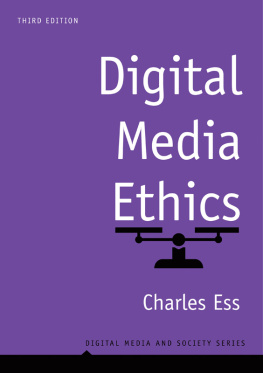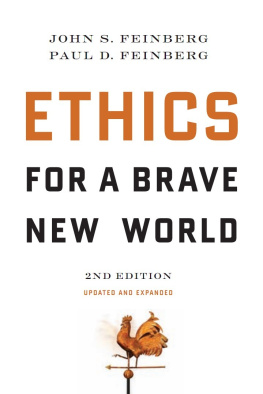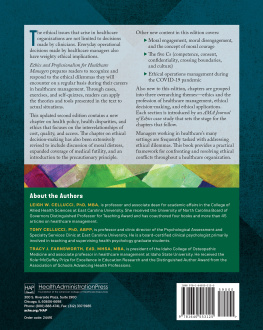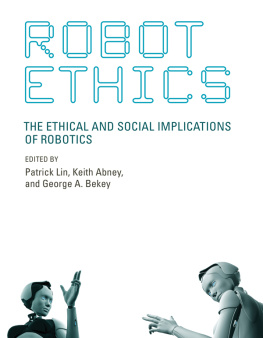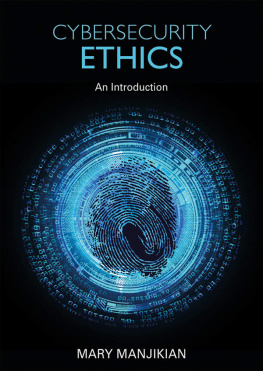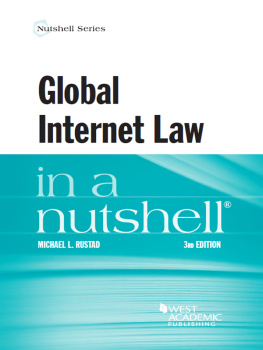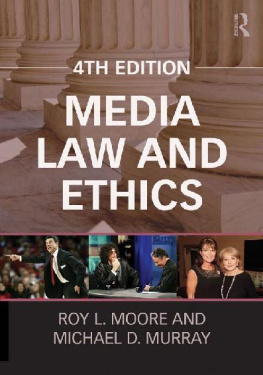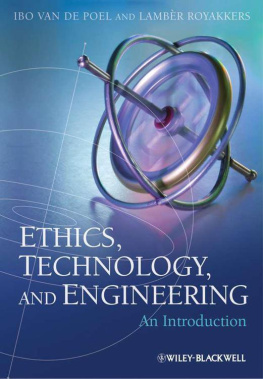
Series title
Digital Media and Society Series
- Nancy Baym, Personal Connections in the Digital Age, 2nd edition
- Mercedes Bunz and Graham Meikle, The Internet of Things
- Jean Burgess and Joshua Green, YouTube, 2nd edition
- Mark Deuze, Media Work
- Andrew Dubber, Radio in the Digital Age
- Quinn DuPont, Cryptocurrencies and Blockchains
- Charles Ess, Digital Media Ethics, 3rd edition
- Jordan Frith, Smartphones as Locative Media
- Alexander Halavais, Search Engine Society, 2nd edition
- Martin Hand, Ubiquitous Photography
- Robert Hassan, The Information Society
- Tim Jordan, Hacking
- Graeme Kirkpatrick, Computer Games and the Social Imaginary
- Tama Leaver, Tim Highfield, and Crystal Abidin, Instagram
- Leah A. Lievrouw, Alternative and Activist New Media
- Rich Ling and Jonathan Donner, Mobile Communication
- Donald Matheson and Stuart Allan, Digital War Reporting
- Dhiraj Murthy, Twitter, 2nd edition
- Zizi A. Papacharissi, A Private Sphere: Democracy in a Digital Age
- Jill Walker Rettberg, Blogging, 2nd edition
- Patrik Wikstrm, The Music Industry, 3rd edition
Digital Media Ethics
Third Edition
charles ess
polity
Copyright page
Copyright Charles Ess 2020
The right of Charles Ess to be identified as Author of this Work has been asserted in accordance with the UK Copyright, Designs and Patents Act 1988.
First published in 2009 by Polity Press
This edition published in 2020 by Polity Press
Polity Press
65 Bridge Street
Cambridge CB2 1UR, UK
Polity Press
101 Station Landing
Suite 300
Medford, MA 02155, USA
All rights reserved. Except for the quotation of short passages for the purpose of criticism and review, no part of this publication may be reproduced, stored in a retrieval system or transmitted, in any form or by any means, electronic, mechanical, photocopying, recording or otherwise, without the prior permission of the publisher.
ISBN-13: 978-1-5095-3342-8
ISBN-13: 978-1-5095-3343-5(pb)
A catalogue record for this book is available from the British Library.
Typeset in 10.25 on 13pt Scala
by Fakenham Prepress Solutions, Fakenham, Norfolk NR21 8NL
Printed and bound in Great Britain by TJ International Limited
The publisher has used its best endeavors to ensure that the URLs for external websites referred to in this book are correct and active at the time of going to press. However, the publisher has no responsibility for the websites and can make no guarantee that a site will remain live or that the content is or will remain appropriate.
Every effort has been made to trace all copyright holders, but if any have been overlooked the publisher will be pleased to include any necessary credits in any subsequent reprint or edition.
For further information on Polity, visit our website: politybooks.com
In memoriam
Barbara Becker (19552009): gifted and energetic philosopher, among the earliest to conjoin phenomenology, embodiment, and computational technologies in what proved to be prophetic and prescient ways
Preston K. Covey, Jr. (19422006): pioneer in conjoining philosophy and computation, including ethics, questions of democracy, and educational computing, and co-founder of what is now the International Association for Computing and Philosophy (IACAP)
Henry Rosemont, Jr. (19342017): leading authority in Chinese philosophy, tireless promoter of comparative philosophy and the liberal arts, inspiring activist and most generous mentor
Brilliant colleagues, generous and patient teachers, good friends: their spirits and guiding insights inform and inspire much of my life as well as this book.
Foreword
Luciano Floridi
A common risk, run by many forewords, is to bother the reader by repeating, sometimes less accurately, what the table of contents of the book already specifies or (and unfortunately this is often an inclusive or) by eulogizing the text and the author, plastering comments that look like semantic clones lifted from a myriad of other texts. It is in order to try to avoid both pitfalls that I shall skip here the usual hypes which the book and its author do deserve, make no mistake in order to speak to the reader a bit more frankly and hence, I hope, less uninformatively.
Like the previous edition, this third edition has all the usual virtues of a good textbook: it is carefully researched, clearly written, and argued intelligently. Yet these are basic features that we have come to expect from high-standard scholarship and do not make it special. That Charles Ess has written a good textbook is uninteresting. That he might have written an excellent (and now newly updated) one is what I would like to argue. What the book offers, over and above its competitors, are some remarkable and, to my knowledge, unique features. Let me be schematic. The list is not exhaustive, nor do the listed features appear in order of importance, but there is a good narrative that keeps them together.
First, the topic. The book addresses the gray but crucial area of ethical concerns raised by digital media. Of course, it is flanked on the shelf by many other textbooks in information and computer ethics, data ethics, AI ethics, and digital ethics (the terminology varies but topics often overlap), even more so than when the second edition was published, but, as Charles Ess well explains, this is not one of them, and it sticks out for its originality. For the book tackles that messy area of our ordinary lives where ethical issues are entangled with digital mass media, communication artifacts, information technologies of all sorts, computational processes, computer-mediated social interactions, algorithms, and so forth. Indeed, it is one of its virtues that it tries to clarify that so forth which I have just somewhat surreptitiously added in order to spare myself the embarrassment of a lack of a clear definition. As Schrdinger once said in a different context, this is a very sharp picture of a rather fuzzy subject.
Second, the approach. The book has all the required philosophical rigor, but, once again, this is not its most impressive feature. It is also graced by a light touch, which means that Ess has avoided being either prescriptive or proscriptive (you will not be told what to do and what not to do), opting in favor of an enlightened (liberal, in his own words), critical description of the problems discussed. This is a noteworthy advantage, since the author empowers the reader, as should be (but often is not) the case with similar texts. Having said all this, the feature that I find unique and outstanding (in the literal sense that it makes this book stand out on the ideal shelf of other comparable books) is its capacity to combine a pluralistic approach without the bitter aftertaste of some crypto-relativism with a well-informed and timely look into non-Western views on the ethical issues it tackles. This is crucial. Following a remarkable tradition of German philosophers (Nietzsche, Schopenhauer, Hegel), Ess makes a sustained and successful effort to bring together Eastern and Western ethical traditions in an enriching and fascinating synthesis. And he achieves all this thanks to his extended, international experiences with a variety of cultures. If you wish to see how masterfully he avoids syncretism, relativism, and dogmatism and succeeds in shaping an overview of the field which is both captivating and ethically robust, you need to read the book. This was already a great feature of the second edition it is now quite essential given the importance of Chinas role in the development of digital technologies and solutions.
Next page
